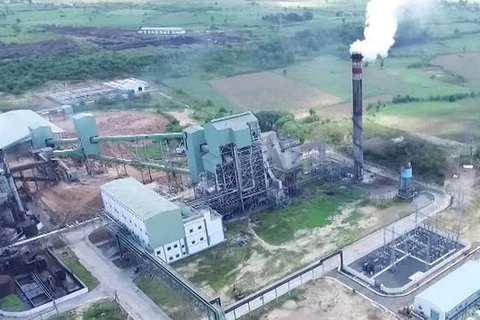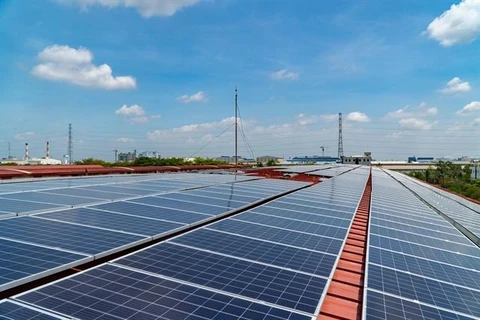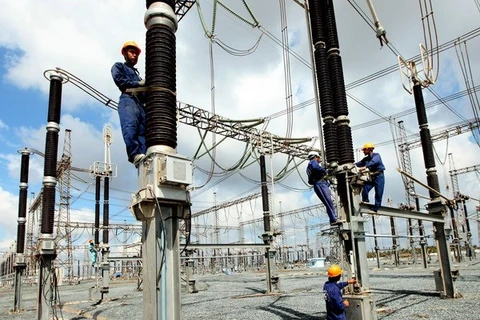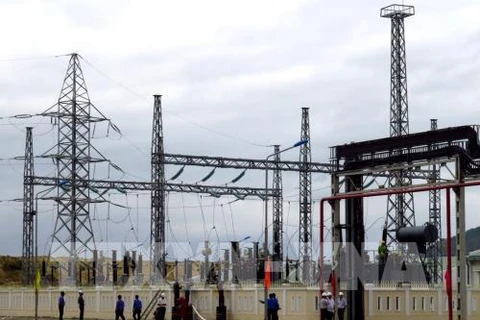Hanoi (VNA) - A seminar was held in Hanoi on June 9 to launch a German-funded project on climate protection through developing sustainable bioenergy markets (BEM) in Vietnam, with the aim of promoting the sustainable development of biomass resources for power production.
Lasting from 2019 to 2023, the project will be funded by the German Federal Ministry for the Environment, Nature Conservation, and Nuclear Safety.
It is designed to help Vietnam realise energy targets set in the revised national power development plan VII, the green growth strategy, and the Politburo’s Resolution No 55/NQ-TW on orientations in national energy development to 2030 with a vision to 2045.
Do Duc Quan, Vice Director of the Electricity and Renewable Energy Authority at the Ministry of Industry and Trade, told the seminar that Vietnam has abundant potential for biomass energy as an agricultural nation. The Government issued mechanisms and policies encouraging the development of the energy source in 2014 and amended them in 2020 to attract more private investment in the field.
Private engagement is expected to make it possible for Vietnam to increase its biomass energy share in power production to 2.1 percent by 2030 as planned, he added.
Jörg Rüger, First Secretary for the Environment at the German Embassy in Vietnam, said wind and solar power have showed strong growth potential in Vietnam but biomass energy is yet to receive suitable exploitation.
Increasing the number of biomass power plants would help Vietnam achieve its nationally determined contributions (NDCs), he noted.
The Paris Agreement, to which Vietnam is a signatory, requests that each country outline and communicate their post-2020 climate action, which are known as NDCs.
The BEM project works to support adjustments to the regulatory framework on planning and licensing biomass energy projects, particularly at the provincial level.
It will improve the private sector’s capacity for the development of biomass investment projects and enhance financial institutions’ capacity to finance biomass energy investment projects.
The project will also facilitate technology cooperation and networks between Vietnamese and international enterprises, research institutions, and universities on the use of biomass for electricity and heat generation./.
Lasting from 2019 to 2023, the project will be funded by the German Federal Ministry for the Environment, Nature Conservation, and Nuclear Safety.
It is designed to help Vietnam realise energy targets set in the revised national power development plan VII, the green growth strategy, and the Politburo’s Resolution No 55/NQ-TW on orientations in national energy development to 2030 with a vision to 2045.
Do Duc Quan, Vice Director of the Electricity and Renewable Energy Authority at the Ministry of Industry and Trade, told the seminar that Vietnam has abundant potential for biomass energy as an agricultural nation. The Government issued mechanisms and policies encouraging the development of the energy source in 2014 and amended them in 2020 to attract more private investment in the field.
Private engagement is expected to make it possible for Vietnam to increase its biomass energy share in power production to 2.1 percent by 2030 as planned, he added.
Jörg Rüger, First Secretary for the Environment at the German Embassy in Vietnam, said wind and solar power have showed strong growth potential in Vietnam but biomass energy is yet to receive suitable exploitation.
Increasing the number of biomass power plants would help Vietnam achieve its nationally determined contributions (NDCs), he noted.
The Paris Agreement, to which Vietnam is a signatory, requests that each country outline and communicate their post-2020 climate action, which are known as NDCs.
The BEM project works to support adjustments to the regulatory framework on planning and licensing biomass energy projects, particularly at the provincial level.
It will improve the private sector’s capacity for the development of biomass investment projects and enhance financial institutions’ capacity to finance biomass energy investment projects.
The project will also facilitate technology cooperation and networks between Vietnamese and international enterprises, research institutions, and universities on the use of biomass for electricity and heat generation./.
VNA
























